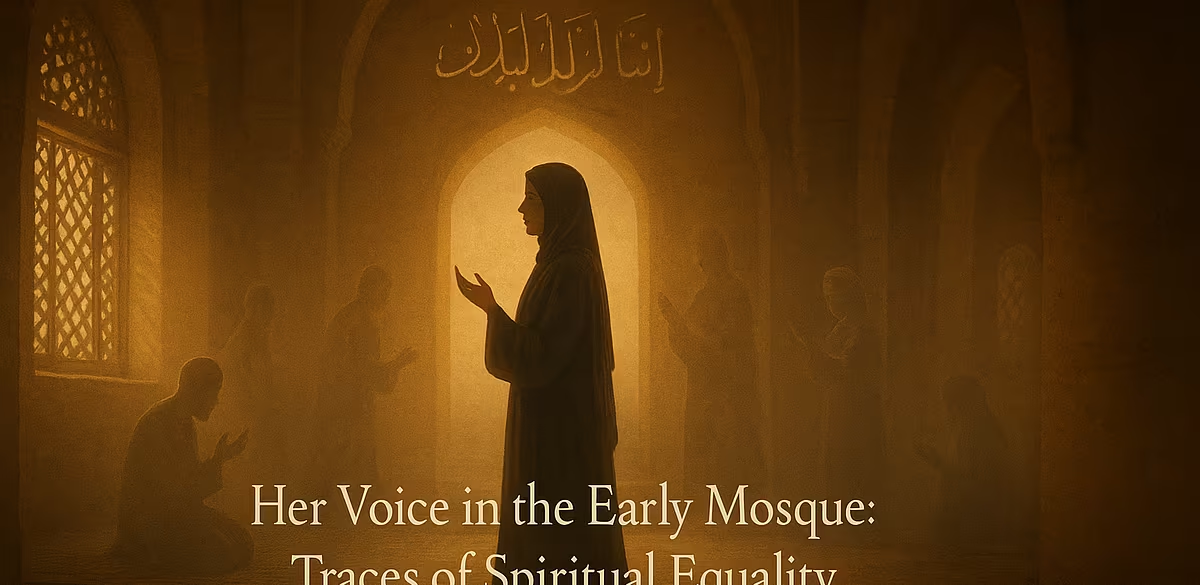“How Qur’an, Prophetic Tradition, and the Forgotten Voices of Early Muslim Women Rewrote the Meaning of Spiritual Equality.”
Medium | 25.11.2025 00:21
“Her Voice in the Early Mosque: Traces of Spiritual Equality”
“How Qur’an, Prophetic Tradition, and the Forgotten Voices of Early Muslim Women Rewrote the Meaning of Spiritual Equality.”
7 min read
·
Just now
--
The first sound is not the adhan, but rather the gentle inhalation of a woman entering the early mosque. She is carrying the silent assurance bestowed by revelation itself, as though the Qur’anic verses are woven into her breath. Moving across the hallowed area with a bravery illuminated by heavenly affirmation, you can practically hear her footsteps echoing Ayah after Ayah, promising dignity, presence, and spiritual equality.
At this point, the early mosque transforms from a mere structure into a living example of Qur’anic psychology, as God states repeatedly, ”And the believers, men and women, are allies of one another” (9:71), a verse that beats beneath her feet like a heartbeat. Her voice reverberates across human expression as revelation rather than rebellion.
We come across a spiritual symmetry through her presence that many people are unaware of. “O women of the Prophet,” “O believing women,” “O Maryam,” and “O wives of the Prophet” are only a few of the direct addresses to women in the Qur’an that formed her inner landscape and gave her a sense of psychological importance. Her…









